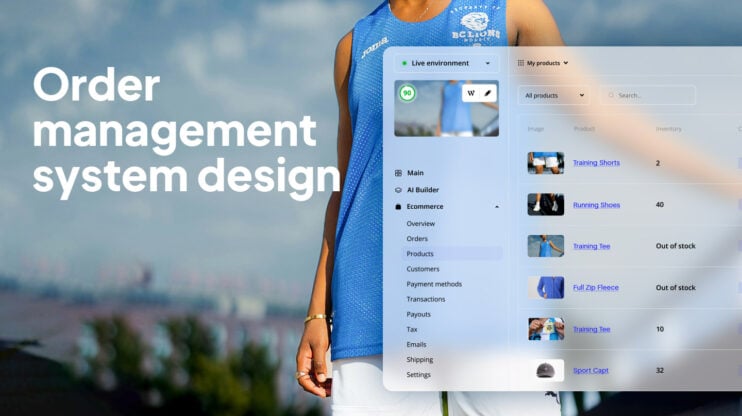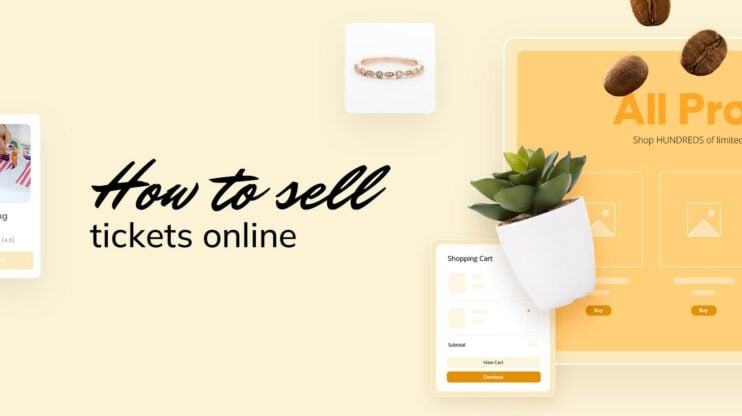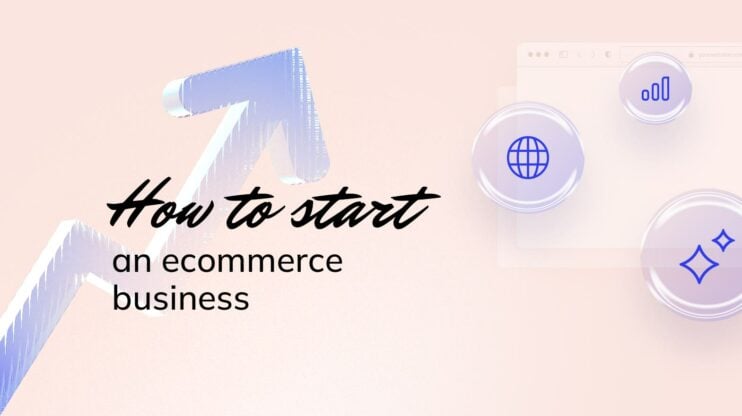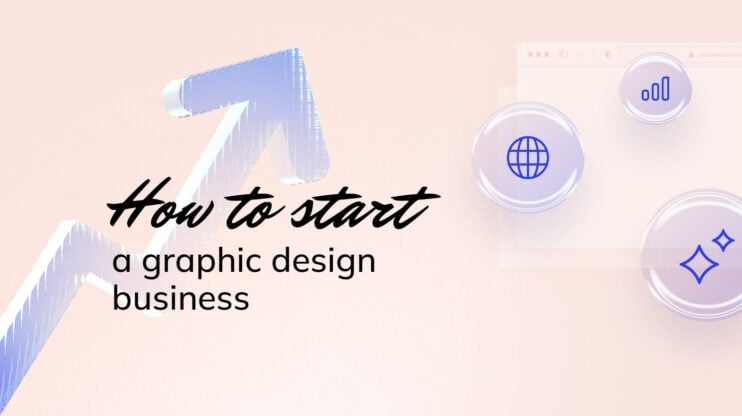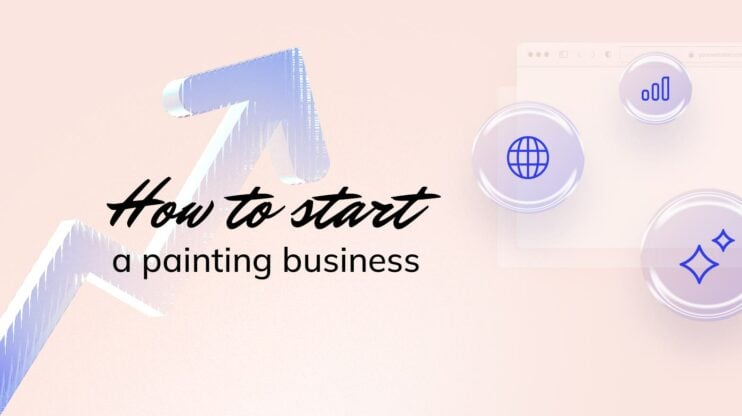As AI shopping assistants become more common, fashion brands are entering a new reality: if your site looks great for people but isn’t easy for AI to understand and recommend, you’ll get left out of the conversation.
Clothing stores also have their own set of demands. Pages need to load fast. Visuals need to sell the product. And as your catalog, regions, or campaigns grow, the site has to scale without turning into a full-time tech project. Whether you’re a small boutique or a global brand, the platform you choose affects everything from how confident customers feel about buying to how efficiently your store runs.
In this guide, we’ve picked the 7 best ecommerce platforms for clothing—mixing newer AI-first options like 10Web with proven leaders like Shopify—so you can choose the right foundation for modern fashion retail.
Key Features to Consider
The minimum requirements for an ecommerce store have shifted. In a world of 5G and instant gratification, a user-friendly interface is just the baseline. To be competitive, your platform must excel in these technical pillars:
AI-Automated Performance
Fashion websites are inherently image-heavy. In the past, this meant slow load times. Today, search engines and AI agents prioritize speed above all else.
Your platform should offer a 90+ PageSpeed score out of the box. Look for automated image optimization (WebP/AVIF conversion), Cloudflare Enterprise integration, and Google Cloud hosting. Solutions like 10Web have pioneered this by using AI to handle back-end optimization automatically.
Immersive Fit Confidence Tools
The greatest cost to a clothing brand is the return loop. Modern platforms must support, or natively integrate, AI-powered sizing assistants and Virtual Try-On (VTO) capabilities. Reducing returns by even 10% through accurate AI sizing can increase your profit margins by 25% and significantly lower your brand’s carbon footprint.
Omnichannel & Social Syncing
Your store is no longer just a URL; it’s a hub for TikTok, Instagram, and AI shopping agents.
A platform must offer seamless, real-time inventory synchronization across all social channels. When a Medium Blue Dress sells out on a TikTok Live, your web store and Instagram shop must reflect that inventory change in milliseconds to prevent overselling.

Create your online store in minutes!
Looking to sell online? Develop and launch your store with 10Web AI Ecommerce Website Builder.
Quick Comparison
| Platform | Best For | Starting Price | Key AI Feature |
| Shopify | Scaling & Omnichannel | ~$29/mo | Shopify Magic: AI product descriptions & photo editing. |
| 10Web | AI-Driven Automation | ~$10/mo | AI Builder: Generates a fully functional store & clones layouts via URL. |
| WooCommerce | Total Data Control | Free (+ Hosting) | Woo AI: AI-powered product listings and SEO metadata. |
| BigCommerce | High-Growth Brands | ~$39/mo | Enterprise AI: Real-time predictive analytics & SEO automation. |
| Wix | Simple Boutiques | ~$27/mo | ADI: Artificial Design Intelligence for instant site layout. |
| Squarespace | Visual Branding | ~$23/mo | Blueprint AI: Design-assistant for aesthetic consistency. |
| Adobe Commerce | Enterprise Complexity | Custom | Adobe Sensei: Deep personalization & B2B AI logic. |
7 best ecommerce platforms for clothing
Here, we explore 7 of the best ecommerce platforms for clothing, highlighting their features, customization options, and benefits for building a stylish and user-friendly online store.
Shopify
Shopify is a top choice for clothing ecommerce. It offers user-friendly tools to build and manage your online store. You can easily customize your site’s look and add features you need.
Shopify provides secure payment processing and integrates with many apps. This makes it simple to handle inventory, shipping, and marketing. The platform also offers AI tools to help optimize your store.
Many clothing brands use Shopify successfully. It works well for both small startups and larger businesses. You can scale your store as your business grows.
Price ranges from $29 to $299 per month. Shopify’s ease of use and fashion-focused features make it ideal for clothing stores. This platform is best for new and growing clothing businesses looking for a reliable, scalable platform.
| Pros | Cons |
| User-friendly interface | Transaction fees for some payment gateways |
| Customizable themes | Some features require paid apps |
| Strong app marketplace | Can be pricey for larger stores |

Create your online store in minutes!
Looking to sell online? Develop and launch your store with 10Web AI Ecommerce Website Builder.
10Web
10Web is an AI-driven platform that converts a single natural-language prompt into a production-ready website in under three minutes. The Clothing AI Website builder delivers a full-stack system, including a structured CMS, managed hosting, and built-in SEO. For clothing brands, this means launching a publish-ready storefront with WooCommerce integration and dynamic logic for bookings or forms. If you want to jumpstart the design process, 10Web offers professional ready-made templates for ecommerce stores that provide a high-end foundation you can customize instantly.
The platform utilizes a hybrid editing workflow, combining Vibe Coding for websites with drag-and-drop precision. Built on WordPress, it ensures full code ownership and portability, allowing fashion retailers to scale through an ecosystem of 60,000+ plugins without hitting a platform ceiling. For enterprise partners, 10Web provides three distinct B2B integration paths: a developer-first API, a Self-Hosted 0-Day Plugin for hosting providers, and a complete White Label Reseller Dashboard.
Pricing: Starter plans begin at $10/month, with premium tiers for higher volume ranging from $25 to $60/month.
| Pros | Cons |
| Production-ready site with hosting | Limited to WordPress |
| Vibe Coding for websites | May have a learning curve |
| 100% data ownership |
WooCommerce
WooCommerce is a WordPress plugin that turns your website into an online store. It’s free to use and offers many features for selling clothes online.
You can customize your store’s look with different themes. WooCommerce lets you add product pages, shopping carts, and checkout options. It works well for small to medium-sized clothing businesses.
WooCommerce gives you control over your store. You can manage inventory, process orders, and handle shipping. It also supports various payment methods.
One downside is that you need some technical skills to set it up. You might need to pay for extra features or hire help for complex tasks.
Prices for WooCommerce vary. The plugin is free, but you’ll pay for hosting, domain, and some add-ons.
We chose WooCommerce for its flexibility and low starting cost. It’s best for clothing sellers who want full control over their online store.
| Pros | Cons |
| Free to use | Requires technical skills |
| Highly customizable | Can be costly with add-ons |
| Good for small to medium businesses | Needs regular updates |

Create your online store in minutes!
Looking to sell online? Develop and launch your store with 10Web AI Ecommerce Website Builder.
BigCommerce
BigCommerce is a popular ecommerce platform for clothing retailers. It offers a range of features to help you set up and run your online store smoothly. You can easily customize your store’s design and manage inventory with BigCommerce’s tools.
One thing you’ll like about BigCommerce is its built-in SEO features. These help your clothing store show up in search results. The platform also supports multi-channel selling, so you can list your products on social media and marketplaces.
A downside of BigCommerce is that some users find the interface tricky to navigate at first. The learning curve can be steep if you’re new to ecommerce.
BigCommerce plans start at $29.95 per month and go up to $299.95 per month for larger stores. We chose it for its scalability – it grows with your business.
This platform works well for mid-sized clothing brands looking to expand. You get advanced features without needing to be too tech-savvy.
| Pros | Cons |
| Strong SEO tools | Steep learning curve |
| Multi-channel selling | Can be pricey for small stores |
| Scalable for growing businesses | Limited free themes |
Squarespace
Squarespace is a popular ecommerce platform for clothing businesses. You can create a stylish online store with their fashion-focused templates. These designs are easy to customize, letting you build a unique brand.
Squarespace offers features tailored for selling clothes. You can manage your inventory, set up product variations, and handle shipping. The platform also integrates with third-party seller accounts, simplifying multi-channel sales.
One big plus is Squarespace’s visual appeal. Your clothing store will look professional and eye-catching. The platform is also user-friendly, making it a good choice if you’re new to ecommerce.
On the downside, Comparing Squarespace with competitors, it has fewer app integrations which might limit your options as your business grows. Pricing starts at $23 per month for basic ecommerce features.
Squarespace stands out for its design-focused approach. It’s best for small to mid-sized clothing stores that want a beautiful, easy-to-use website.
| Pros | Cons |
| Stylish templates | Fewer app integrations |
| Easy to use | Can be pricey for larger stores |
| Built-in ecommerce tools | Limited customization options |
Wix
Wix is a popular ecommerce platform for clothing businesses. It offers many website templates and customization options to create your online store. You can easily set up product pages, manage inventory, and process orders. Wix offers a user-friendly interface, alongside a drag-and-drop website editor and built-in SEO tools.
On the downside, Wix has limited advanced features that might become a problem for websites that want to grow their business. Pricing starts from $23 to $49 per month for the ecommerce plans and is great for beginners who want to create a professional-looking clothing store quickly.
Wix can best benefit small to medium-sized clothing businesses new to ecommerce.
| Pros | Cons |
| Easy to use | Limited scalability |
| Beautiful templates | Transaction fees on basic plan |
| Mobile-responsive designs | Can’t switch templates easily |

Create your online store in minutes!
Looking to sell online? Develop and launch your store with 10Web AI Ecommerce Website Builder.
Adobe Commerce (Magento)
Adobe Commerce is a top choice for clothing ecommerce. It’s popular among big fashion brands like Hermès and Christian Louboutin. The platform handles over $100 billion in sales yearly and has about 190,000 active users.
You’ll find that Adobe Commerce offers great flexibility for your online clothing store. It lets you customize your site to fit your brand’s unique style. The platform also provides many features to help you sell clothes effectively.
Adobe Commerce works well for businesses of all sizes. It can grow with your company as you expand. You’ll have tools to manage inventory, process orders, and offer a smooth shopping experience.
One drawback is that it can be complex to use. You might need technical help to set up and run your store. It’s also not the cheapest option out there.
Adobe Commerce’s pricing varies based on your needs. The basic version is free, but you’ll likely want paid features for a full-featured clothing store.
| Pros | Cons |
| Highly customizable | Can be complex to use |
| Scalable for growth | May require technical help |
| Many features for clothing sales | Can be expensive |
Which platform fits your brand?
- IF you want a high-end custom design but have zero technical skill: Choose 10Web. It uses AI to build a pro-level WooCommerce store on top-tier hosting.
- IF you are a massive brand with a multi-million dollar budget: Choose Adobe Commerce.
- IF you prioritize “social commerce” (selling primarily via TikTok/Instagram): Choose Shopify.
- IF you are an artist-designer where the “Visual Vibe” is everything: Choose Squarespace.
Conclusion
To succeed in today’s landscape, the right ecommerce platform should be an engine that determines a clothing brand’s speed, scalability, and market relevance. While each of the 7 platforms reviewed brings distinct advantages, from the industry-leading conversion tools of Shopify to the performance-first, AI-driven automation of 10Web, the goal remains universal: building a brand that is both resilient and future-ready.
By choosing a platform that prioritizes AI optimization and advanced automation, fashion retailers can do more than just expand their reach. They can significantly reduce costly returns through AI-driven “fit confidence” tools, streamline operations with automated merchandising, and ensure their catalogs are instantly discoverable by the next generation of AI shopping agents. Success now requires a commitment to this digital shift, allowing brands to scale on a foundation that is as functionally robust as it is aesthetically refined.
FAQ
How much does it cost to start a clothing ecommerce store?
Why is mobile optimization important for clothing stores?
Can I sell on multiple channels with one ecommerce platform?
What features should I prioritize when choosing a clothing ecommerce platform?







